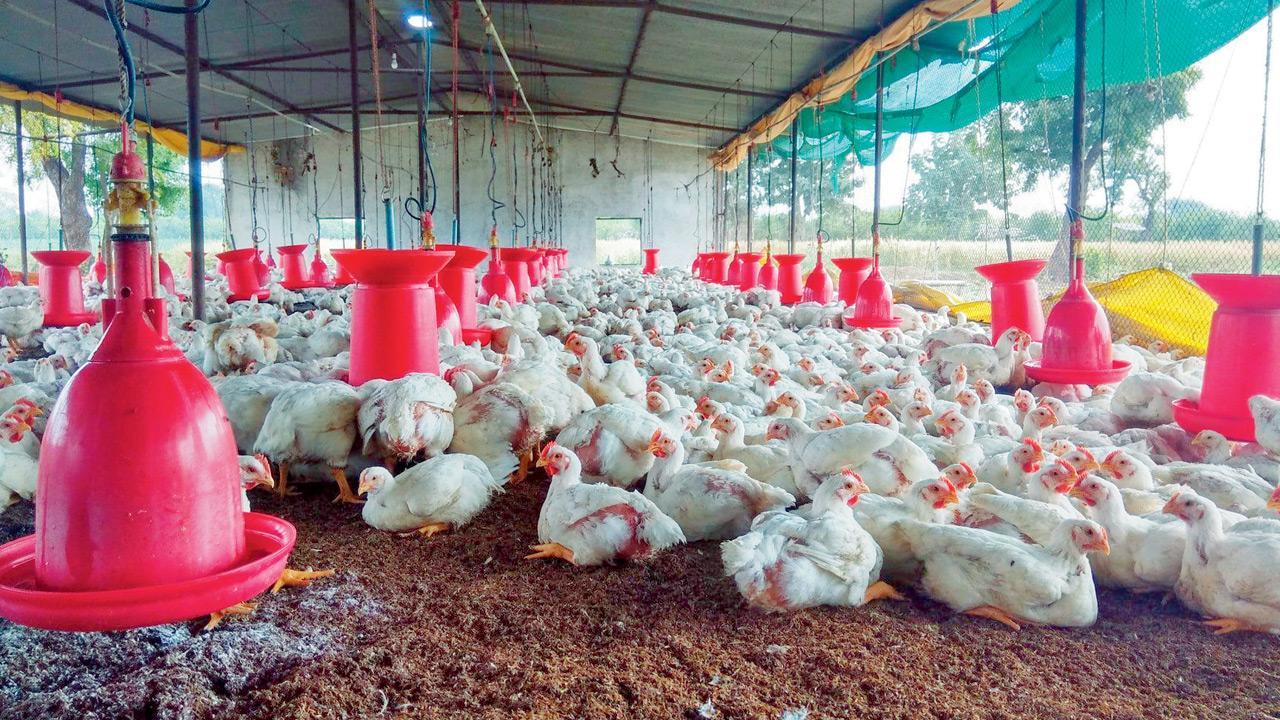Suspected cases may point to link between chicken farming, GBS

Representation Pic/istock
The Maharashtra Animal Husbandry Department has launched an investigation into a potential link between poultry farming and Guillain-Barré Syndrome (GBS) following directives from the central and state governments. The testing process is focused on Khadakwasla and nearby areas, where several suspected cases of GBS have been reported.
ADVERTISEMENT
Animal Husbandry Commissioner Dr Praveenkumar Deore said, “A special team from the department has collected cloacal swabs, faecal matter, and water samples from 11 poultry farms in the region, which have been sent sent for analysis to the National Institute of Virology (NIV), Pune. The investigation aims to determine whether poultry or contaminated water could be contributing factors to the recent rise in GBS cases.”
The officials further stated that the preliminary results from NIV indicate that out of the total samples tested, 106 cloacal swabs, 89 faecal samples, and 17 additional samples from nine farms tested positive for Campylobacter jejuni, a bacterium commonly found in poultry intestines and known to cause food-borne illnesses in humans. Moreover, five samples from one farm tested positive for norovirus, which can also lead to gastrointestinal infections. Additionally, 29 water samples were analysed, of which 26 tested negative for Campylobacter jejuni, while results for three samples are still pending.
The department has emphasised the importance of biosecurity measures at poultry farms. Farm owners have been advised to ensure strict hygiene practices, regular sanitisation of their premises, and proper disposal of poultry waste. Officials have also urged poultry farmers to prevent bird waste from contaminating nearby water bodies.
While some reports suggested that poultry might be responsible for spreading GBS, experts have clarified that Campylobacter jejuni is a naturally occurring bacterium found in the intestines of poultry and other animals, including humans. It is not uncommon in food chains. The department has issued an advisory, particularly in light of the upcoming monsoon season, which increases the risk of water-borne diseases such as cholera. Citizens have been advised to consume properly boiled water, use disinfectants and ensure that vegetables and meat are thoroughly cleaned and cooked before consumption.
Dr Deore said GBS is not a contagious disease and does not spread through casual contact. “There is no need for panic. Properly cooked chicken is safe to eat,” he stated, urging people to avoid misinformation and continue consuming poultry products that have been adequately cooked.
 Subscribe today by clicking the link and stay updated with the latest news!" Click here!
Subscribe today by clicking the link and stay updated with the latest news!" Click here!







